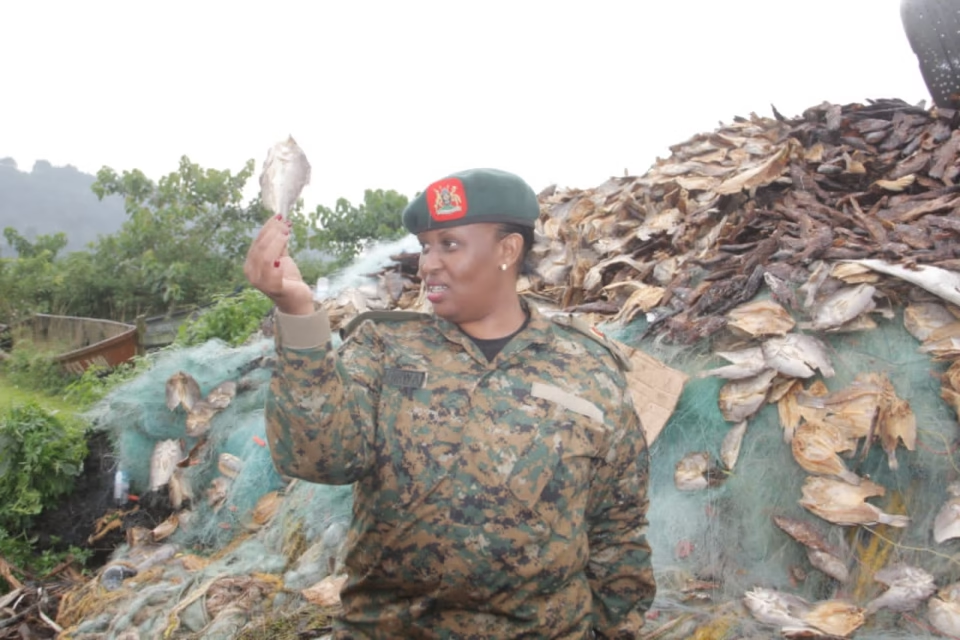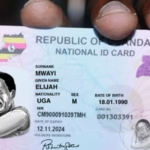Lt. Col. Mercy Tukahirwa, appointed by President Yoweri Museveni as commander of the Uganda People’s Defence Force (UPDF) Fisheries Protection Unit in November 2023, has been accused of corruption and human rights violations. She replaced Lt. Col. Dick Kaija, who had been in the position since December 2020.
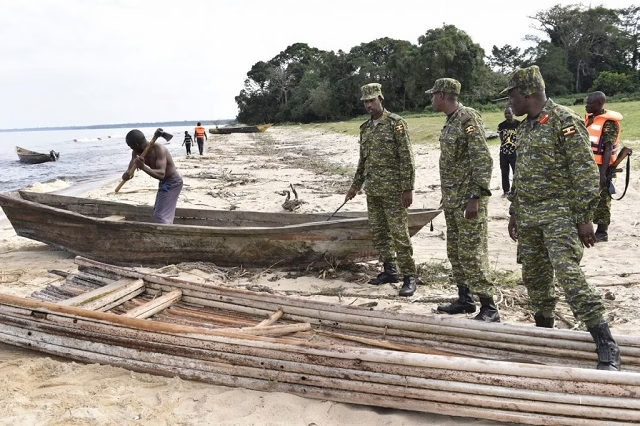
Allegations Against Lt. Col. Tukahirwa
- Corruption: Fishermen claim they are forced to pay bribes of at least 250,000 Ugandan shillings to access fishing waters.
- Human Rights Violations: Reports of violence against fishermen, including beatings by men in uniform deployed by Tukahirwa.
- Unsustainable Fishing Practices: Permitting juvenile fishing nets, which deplete fish populations and harm the industry.
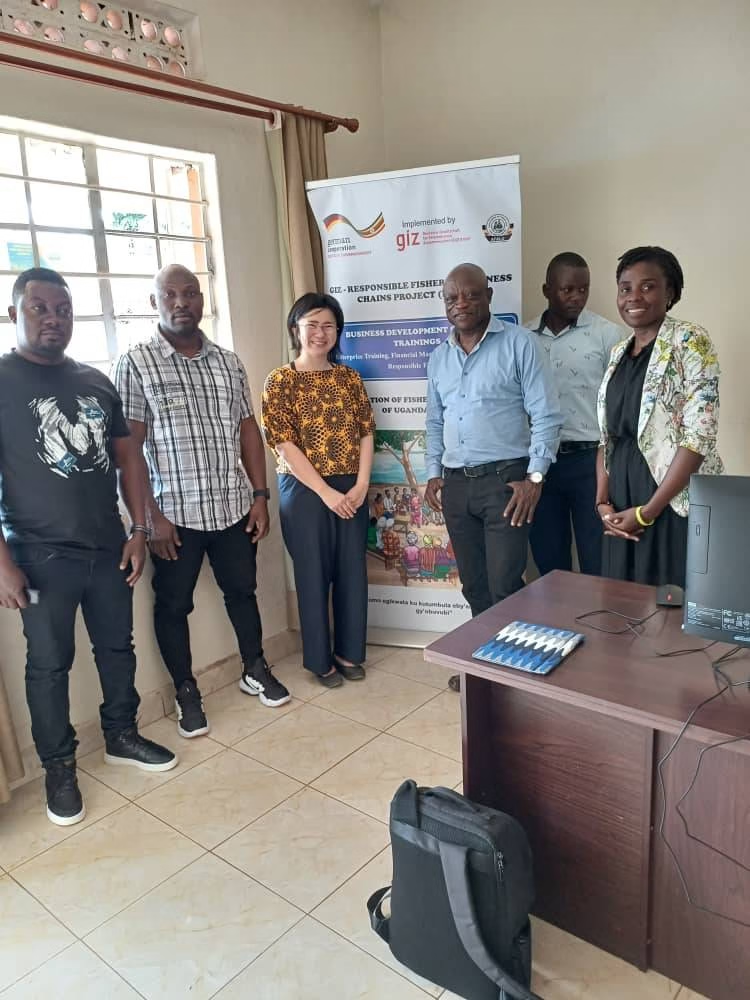
Background
The Fisheries Protection Unit was established in 2017 to combat illegal fishing practices on Ugandan water bodies. Previous commanders, such as Lt. Col. James Nuwagaba and Lt. Col. Dick Kaija, faced criticism for alleged brutality and human rights violations.
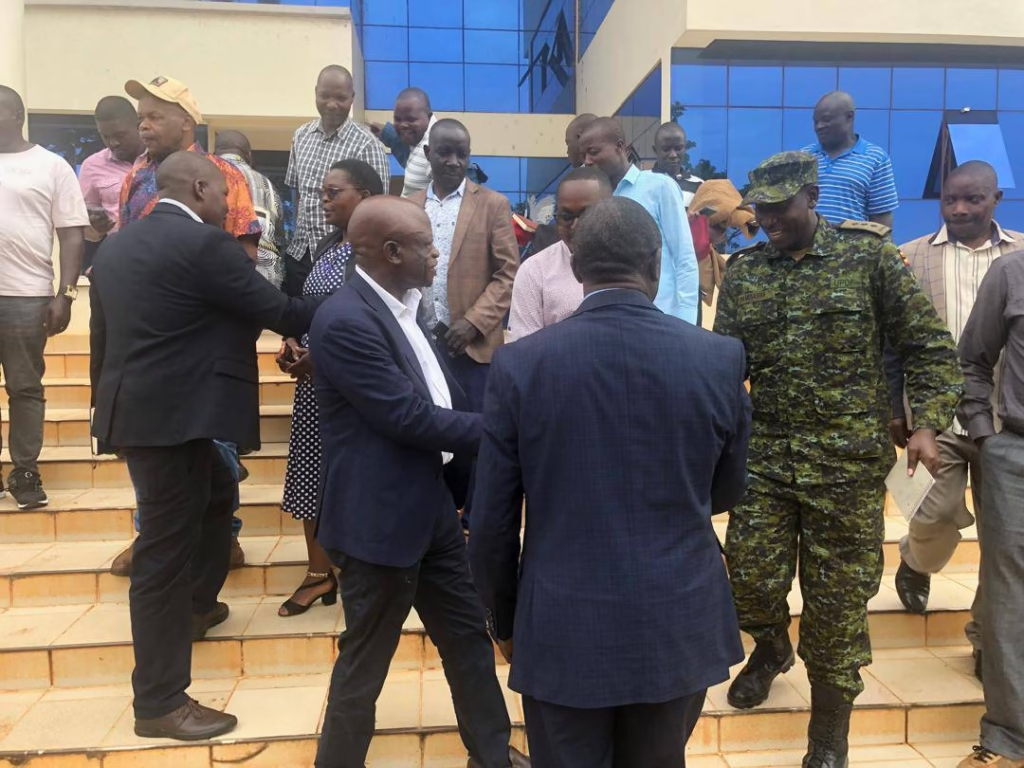
Impact
Tukahirwa’s appointment and actions have sparked controversy, with some sources suggesting she has transformed the UPDF’s image on Ugandan lakes by eradicating illegal fishing gear. However, others argue that her methods are heavy-handed and prioritize personal gain over the well-being of fishermen.
Calls to Action
AFALU Vice Chairperson Musitafah Ntale has urged President Museveni to investigate Tukahirwa’s actions and address the issues plaguing the fishing industry. The National Fisheries Resource Research Institute (NaFFIR) may also need to intervene to promote sustainable fishing practices.
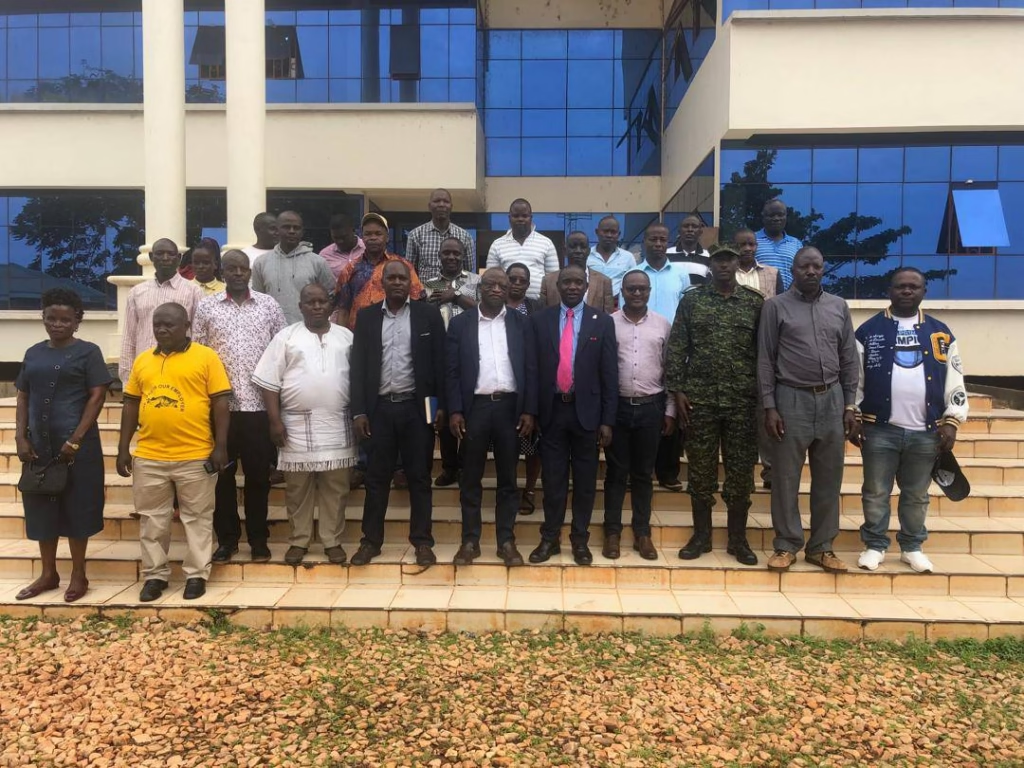
The situation with fishermen in Buvuma, Dolwe, Kalangala, and other sites highlights a broader issue of corruption and its impact on service delivery in Uganda. Corruption can lead to:
- Financial losses: Trillions of shillings are allegedly consumed through corrupt practices, depriving the country of resources needed for development.
- Poor service delivery: Corruption can result in inadequate or ineffective services, affecting various sectors, including fisheries, healthcare, education, and infrastructure.
- Inequality and suffering: The consequences of corruption are often felt by ordinary citizens, including fishermen, who struggle to make a living due to unfair practices and lack of support.
The issue in Buvuma and other fishing sites may be symptomatic of a larger problem that requires attention from authorities and stakeholders to address corruption and ensure fair treatment of fishermen and other affected communities.

The fishing industry in Uganda is facing severe challenges due to corruption and oppressive practices by the UPDF Fisheries Protection Unit. Fishermen are being forced to pay bribes to access fishing waters, and those who can’t afford it are being beaten or harassed. This has led to a decline in the livelihoods of many fishermen and businessmen in the industry.
The Impact on Fishermen and the Industry
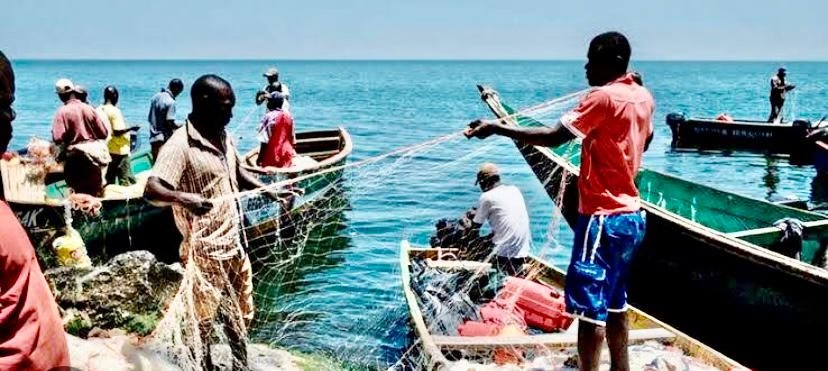
- Loss of Livelihoods: Many fishermen can no longer afford to take care of their families due to the corrupt practices of the UPDF Fisheries Protection Unit.
- Decline of the Industry: The industry is suffering due to unsustainable fishing practices and the lack of support for fishermen.
- Human Rights Violations: Reports of violence and harassment against fishermen by men in uniform deployed by the UPDF Fisheries Protection Unit are alarming.
The Role of Government and Corruption
- UPDF and NRM Leaders: Allegations of collusion between UPDF officials and NRM leaders and cadres have led to a loss of trust in the government.
- Corruption: Corruption is rampant in the fisheries sector, with bribes being demanded for access to fishing waters and other services.
- Government Response: The government needs to urgently address these issues to prevent further suffering and loss of livelihoods for fishermen and businessmen in the industry.
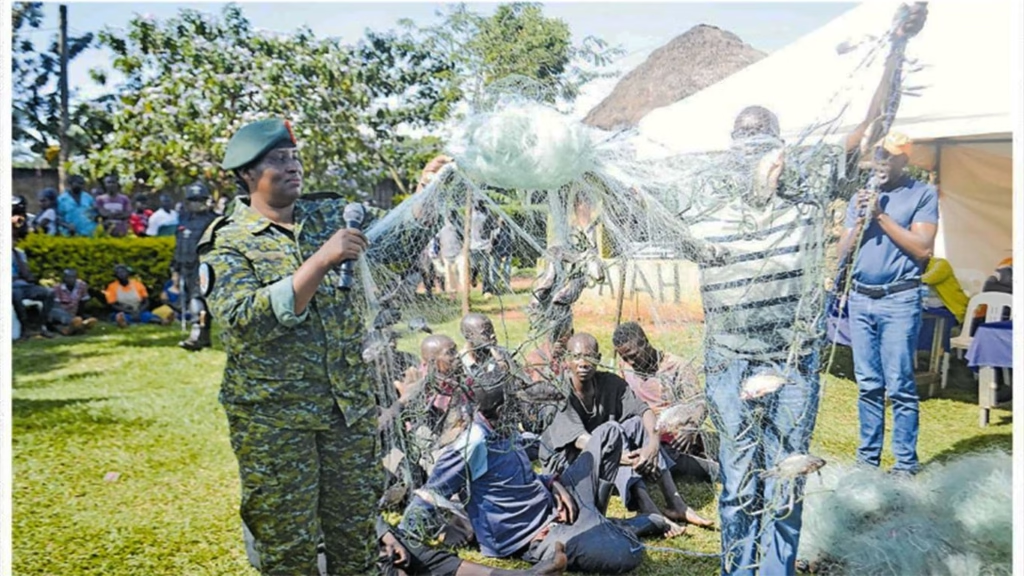
Potential Solutions
- Increased Transparency: Implementing transparent and accountable systems for managing fisheries resources could help reduce corruption.
- Support for Fishermen: Providing support to fishermen, such as access to affordable fishing gear and markets, could help them recover from the impact of corruption.
- Government Accountability: Holding the government accountable for its actions and ensuring that those responsible for corruption are brought to justice is crucial for rebuilding trust.

